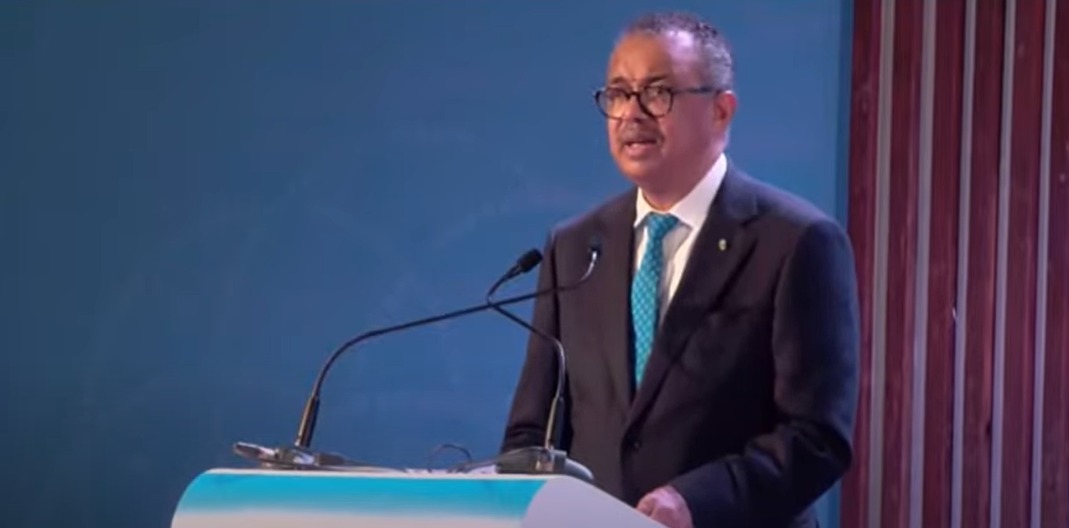World Health Organisation (WHO) Director-General Tedros Adhanom Ghebreyesus on Monday mentioned the Global Traditional Medicine Centre established in India, and the first global summit on traditional medicine, organised by the WHO and co-hosted by the Ministry of Ayush, India, in his address at the 77th World Health Assembly in Geneva.
While presenting his report to the 77th World Health Assembly in Geneva, Ghebreyesus said, “With WHO leadership, opportunities for technology transfer and geographically diversified manufacturing continue to expand. 15 partners joined the mRNA Technology Transfer Programme, and with WHO support, have started expanding the technology pipeline to include new vaccines of regional and global interest.”
“We also established the Global Traditional Medicine Centre in India, and hosted the first global summit on traditional medicine,” he added.
In 2022, the WHO and the Government of India signed an agreement to establish the WHO Global Centre for Traditional Medicine. Supported by an investment of USD 250 million from the Indian government, this global knowledge centre for traditional medicine aims to harness the potential of traditional medicine from across the world through modern science and technology to improve the health of people and the planet, according to a WHO press release.
In his address to the World Health Assembly, he noted that 2023 was a year of many challenges, but also of many achievements. He called 2023 a productive year in WHO’s work supporting access to medicines and other health products.
Tedros Adhanom Ghebreyesus said, “We prequalified 120 medicines, vaccines, diagnostics and other products last year for HIV, malaria, multidrug-resistant TB, Ebola, polio and COVID-19, as well as the first long-acting insulin analogues.”
“We issued eight alerts for substandard or falsified medical products, and we standardized nomenclature for more than 300 cell and gene therapies – it sounds boring, but it’s one of those things that WHO does that no one notices, but which makes a huge difference to researchers, manufacturers and prescribers,” he added.
Ghebreyesus noted that WHO continues to support member states to strengthen their regulatory systems. He said that WHO recognised Turkiye’s system as having achieved maturity level 3, and Saudi Arabia’s as level 4.
He stated Singapore, South Korea and Switzerland were the first three countries to become WHO-Listed Regulatory Authorities, making them “regulators of reference.” He added, “And just last week we listed a further 33 national and regional regulators.”
He said that one of the biggest disruptions caused by the COVID-19 pandemic was to routine immunisation programmes in many nations, resulting in backsliding coverage and outbreaks of measles, diphtheria, polio, yellow fever, and more.
WHO Chief said, “In April last year, we launched “The Big Catch Up” with UNICEF and Gavi, to support countries to shut down outbreaks and restore immunization programmes at least to pre-pandemic levels.
“This year, most of the 20 countries with the most children who missed out completely on vaccines during the pandemic are launching and implementing their plans to reach those children,” he added.
He said that the Strategic Advisory Group of Experts on Immunisation, SAGE, in 2023 recommended new vaccines for dengue, meningitis, and a second vaccine for malaria, the R21-Matrix M vaccine.
In his address, he said that WHO estimates that 777 million people will be better protected from health emergencies by 2025, three-quarters of the way to our target of 1 billion. He further said, “Of course, “better protected” does not mean completely protected, and as the COVID-19 pandemic demonstrated, all Member States have much work to do, individually and together.”
WHO chief said that he had declared an end to both COVID-19 and mpox as global health emergencies in May last year. He stated, “We continue to call on all countries to maintain and reinforce the capacities for surveillance, detection and response that they built during the pandemic. These investments must not go to waste.” (ANI)










